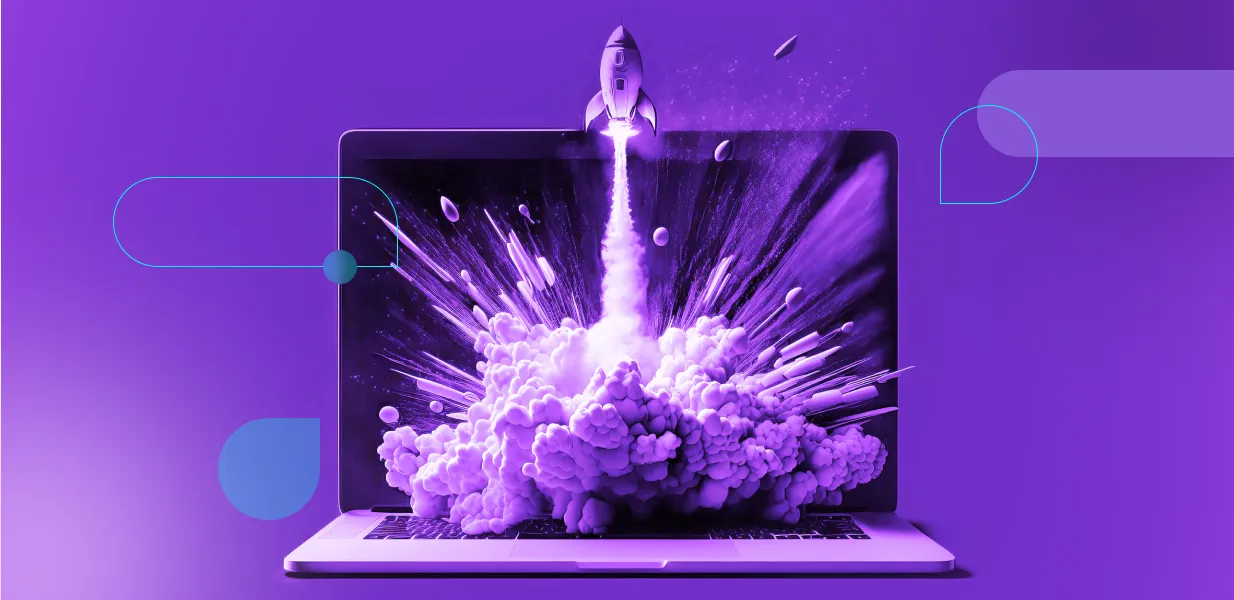
Digitization, digitalization, and digital transformation: what's the difference?

Staying in sync with the digital world is not an easy feat, but it is a major competitive advantage for businesses from all industries today. Being digitally savvy and up-to-date with digital technologies has become a must for progressive companies that want to make a difference in their fields.
A few significant differentiations in this respect would make your life much easier: the terms digitization, digitalization, and digital transformation sound so close to each other, yet being able to tell the nuances between them is critical.
In simple terms, digitization refers to the switch from analog to digital format. At the same time, digitalization spans a bit broader context — making processes, collaboration, reporting, and everything in between work better through digital tools. Building upon these two terms, digital transformation is yet another step further. It signifies the continuous transformation process based on digitized information and digitalized tools.
Let’s dig into the differences between them, and how to juxtapose digitalization vs. digital transformation and digitization vs. digital transformation. This knowledge will equip you to make the best of each process for your organization in the digital age.
What is digitization, digitalization, and digital transformation?
Many people confuse the three terms. This is because companies often use these terms interchangeably. However, they each represent different concepts and processes that can help transform the way your business functions.
What does each term mean, really?
Digitalization, digitization, and digital transformation are three different things. However, they all refer to the same process: the creation of electronic information that benefits businesses and individuals in some way.
Here is an overview with examples.
What is digitization?
This may be the easiest to grasp. Digitization is the process of converting analog information (physical format) into digital form (digital formats).
For example, when text or paper documents are transferred into digital files, they have been digitized. The same goes for analog VHS cassettes and their digital representation - digital files.
What is digitalization?
Digitalization is the next step after turning data into a digital format. Through digitalization, you make use of the power of digital information to power up the way you work. It helps improve business processes with the goal of cost-saving and revenue optimization.
Consider examples like setting up automated workflows and enabling cloud computing for data storage and remote access to imagine digitalization in practice. In these situations, you reap the power of digital information to boost how your organization operates.
What is digital transformation?
And then comes transformation. It builds upon digitization and digitalization to empower the complete change of an organization’s models, activities, processes, and even products and services. Through this, a company uses the numerous and novel capabilities of leveraging digital technologies to improve its existing business model, adaptability, performance, and output.
Digital transformation is much more than just digitizing products and services, although this is an integral part of the process. Rather than simply converting analog content into a digital format, digital transformation is about changing business models to remain competitive in this digital age using the proper digital transformation methodology.
For example, an organization may opt-in for digital transformation to entirely revamp the working process with its customers, focusing on people rather than processes to make itself customer-centric. This would include creating user-friendly customer-facing communication, digital data intake, and product delivery.
Digitization, digitalization, and digital transformation: what's the difference?
The borders between the three notions may seem a bit elusive initially, but the main differences will help you differentiate them.
Digitization vs. digitalization
While digitization entails the shift from analog to digital, the digitalization process takes this a step further. The latter also includes creating additional business value, new revenue streams, and new business models due to switching to digital.
Digitization and digitalization don’t need to be consecutive — they might as well be simultaneously occurring processes.
Digitalization vs. digital transformation
The differentiation between these two may be even more confusing, as they both refer to using digital technologies to improve how organizations function and their existing business models.
But in fact, it’s easy to tell the two apart. Digital transformation takes digitalization another step further. It includes all aspects of how a business operates and revamps it in a way that brings new value-producing opportunities, faster business activities, digital processes, and an overall digital reshaping of every aspect of an organization.
That’s why profound and accelerating digital transformation has its challenges. It entails a massive cultural change. It takes businesses from a company-centric to a people-centric approach, making all the difference in how they operate and provide their products and services to end customers.
Digitalization leads to digital business; digital transformation requires digital company, and digitization
How do digitization, digitalization, and digital transformation interact to bring about a revolution in the way digital business operates today?
The three conceptual terms work together — consecutively and concurrently — to bring about a wholesome shift in the business landscape. It all starts with digitizing data (digitization) and then digitalizing processes (digitalization). These two processes revolve around digital technology.
But then, to master the transformation step, organizations have to focus on people rather than technology. Digital transformation has powerful benefits when reshaping the whole organization, the non-digital and digital culture, and its overall strategy.
In the final analysis, therefore, we digitize information, automate processes and roles that make up the operations of a business, and digitally transform the business processes and strategy. Each one is necessary but not sufficient for the next, and most importantly, digitization and digitalization are essentially about technology, but digital transformation is not. It is about the customer.
Prepare your business for the future with well-executed digital transformation
Resolute Software has extensive and proven experience in supporting companies that make the bold step of undertaking their digital transformation journey.
Get in touch today to learn how Resolute Software can boost your organization’s digital efforts and set your journey to success.
FAQs
Digitalization refers to the process of boosting business processes and models through the use of digitized data. Digital transformation expands upon this to include having a full-blown transformation strategy that aims to improve every aspect of an organization’s functioning with the help of digital technologies and applied digitalization.
Digital is the form in which data is stored, as opposed to analog (i.e. a paper document vs. a digital document). Digitalization, on the other hand, is the optimization of internal business operations, powered by digitized assets.
Digital, as noted, is the format, while digitization is the process of turning analog information into digital.
An example of digitization is the user creation of automatic workflows that speed up the completion of tasks.





